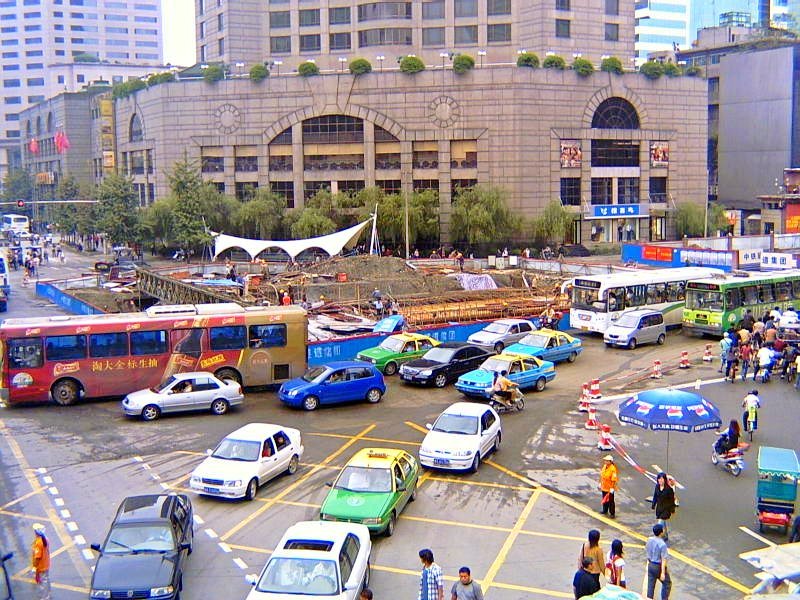With a handful of notable exceptions, they continue to talk bullshit.
 By sending fleets of English convicts–largely bred of a raging worldwide economic depression–out to a new colony at New South Wales from 1788, William Pitt the younger barely managed to avoid the bloody revolution that had taken place in America and was about to break out in France.
By sending fleets of English convicts–largely bred of a raging worldwide economic depression–out to a new colony at New South Wales from 1788, William Pitt the younger barely managed to avoid the bloody revolution that had taken place in America and was about to break out in France.
Such is the magnificence of human progress, the State of Victoria now proposes to have its criminals serve out their time in shipping containers.
During WWII, Victorian magistrate, PR Biggin, produced a booklet showing that a fatally flawed economic system was responsible for approximately 80% of Australia’s crime.
Biggin’s “The difficulties of a beak“ provides striking insights that unfortunately continue to elude today’s governments, economists and magistrates.
____________________________________________
They lie, the men who tell us in a loud decisive tone
That want is here a stranger, and that misery’s unknown;
For where the nearest suburb and the city proper meet
My window-sill is level with the faces in the street
TWEEDLEDUM AND TWEEDLEDUMMER
They’re just as bad as each other: one of the two major political parties blaming the other for the mess they inherited when they came into power, into government.
But this time, Joe Hockey, it really is different.
Whilst Labor didn’t cover itself in glory from 2007 to 2013, it most certainly did inherit a damning legacy from John Howard and Peter Costello. The Howard government failed to take any action at all to curb the residential real estate bubble that’s delivering us such financial grief, with people now unwilling to spend. (Even China has been proactive in trying to deflate its real estate bubble!)
Here’s proof of the Howard/Costello legacy.
So, please, Joe Hockey, no more of your “inherited from Labor” bullshit!
_________________________________
“Government of the people, by the people, and for the people” requires public capture of the rent, the whole rent, and nothing but the rent. – Maireid Sullivan
 I had a “light bulb” moment in China during discussion of the extreme poverty of her farmers at the University of Sichuan’s workshop on land policy in Chengdu last week.
I had a “light bulb” moment in China during discussion of the extreme poverty of her farmers at the University of Sichuan’s workshop on land policy in Chengdu last week.
Intriguingly, Dr Sit Tsui from China’s Institute of Rural Reconstruction gave a run down also on Brazil, which inherits a colonial plantation economy where the urbanization rate is almost 85% and the poor have constantly fought for land reform. She said Brazilian urban poor and landless peasants are both “trapped in a dilemma”.
Unlike large agribusiness holdings, the vast majority of farmers in China work their little allotments, virtually for a subsistence living. Then there’s the ‘people’s commune’ allotment within in each village, a bit like the old English commons to which Henry VIII put an end.
Then the similarities hit me. Australian farmers are price-taking corks bobbing in the economic ocean, too. Australians owe their existence to these people–to the variety and freshness of their produce–but their earnings clearly do not reflect their importance in the economy. The large supermarkets Coles and Woolworths rip them off mercilessly, and they’ve just got to cop it.
Australian farmers live poor then strike the jackpot in their old age when they sell the farm and have to move into town. Are small farmers, everywhere, destined to sell out to “efficient” monoculture agribusiness?
How can this be so? Why is it that self-serving imbeciles can make obscene fortunes, whilst those farmers who grow the food that keeps us alive are forced to live in poverty?
It’s The Law of Rent, pure and simple.
Farmers’ land rent is exceedingly low, or in the case of China’s sub-marginal subsistence farmers, it is nil.
I suddenly realised if we were to capture the economic rent of land for revenue instead of arbitrary taxes, a social dividend could be distribute equally to all citizens, as advocated by great philosophers across the centuries. The humble farmer would be the first to benefit, because the greatest rents are to be found in the cities.
Meanwhile, China introduces and wrestles with innumerable, inefficient land value capture policies in order to try to take the steam out of her real estate bubble before it explodes across the nation.
But China now assesses her land values. Therefore, taxes like deed taxes, urban real estate taxes, the property tax, farmland occupation tax, urban land use tax, and land value increment tax could all be replaced at local government level by one all-in ad valorem rent on land values, struck at a suitably high rate.
Whether or not they realise it, therein lies a real future for farmers: everywhere.
“BANKERS AND COMMUNISTS”, a thoughtful article by Alan Kohler in today’s Business Spectator.
On which I commented as follows:
Great article, Alan! I’ve just come from a conference/workshop in Chengdu last week, organised by academics from Trier University in Germany and Sichuan University concerning China’s land policy. The Chinese are increasingly aware that the multitude of farmers on whom the nation relies, as here in Australia, are not getting anything like a fair price for their products, and are beginning to espy the mechanism which delivers wealth to the wealthy and poverty to the producers.
Things in China are in much sharper relief than here in the West, and land policy has quickly become the focus. China is beginning to learn that unlike productive wealth, land rent needs to be shared equally between all citizens, so the poor receive their share of the surplus. Failing this, urban billionaire developers are being created on the back of the land rent deprivations of the poor.
China is considering two options, selling off land in a “one-off’ to create a fund to address some of her inequalities, or capturing her land rents (to which barely subsisting farmers would have to contribute nothing).
I argued the case for the latter, and was happy to see a number of China’s academics also understand that a secure revenue flow is preferable to selling off the silverware.
The argument is far from won, however. As in Australia, Chinese billionaires find it difficult to accept the principle of any significant land-based revenue stream.
GET IT RIGHT FIRST UP. LAY DOWN THE POLICY WELL IN THE FIRST INSTANCE. (A RIVER IS ALWAYS PUREST AT ITS SOURCE.)
Here’s my presentation to the China land policy workshop in Chengdu yesterday. Bryan-Chengdu-final-中文
It doesn’t mention that the ACT still captures a little of the rent for local government, and that it is replacing stamp duty from extending land value capture, but that came out in later discussion.
There’s no doubt some of the Chinese academics at the workshop have “seen the cat”, and let’s hope China will adopt a system of land value capture, rather than selling off her land for a “once-only” gain.
A lovely dinner last night with all the speakers, after the two-day workshop.
I thank the organisers of the conference, The College of Architecture and Environment, Sichuan University, and Professor Dirk Loehr, Environmental Campus Birkenfeld, University of Applied Sciences Trier, Germany for my invitation to speak.
It was heartening to learn we have equally committed brothers and sisters operating out of Germany and China – and I can recommend a visit to Dr Dirk Loehr’s blogsite: “Rent Grabbing”.
 Wow! I’ve found a new definition of suicide: a pedestrian trying to cross a street in Chengdu! And that Chengdu ‘Hot Pot’ is another pretty good way to do yourself in.
Wow! I’ve found a new definition of suicide: a pedestrian trying to cross a street in Chengdu! And that Chengdu ‘Hot Pot’ is another pretty good way to do yourself in.
A great land use policy workshop, though. I’m speaking about “Lessons from Canberra” tomorrow.
And the poet Du Fu’s cottage is much more than a cottage; it’s a vast area of quiet landscaped contemplation in an incredibly active city.
Uninhibited line-dancing, music and singing in the People’s Park and great restaurants, tea rooms and “The Alley” shops. Nice people!
 Michael Stutchbury, editor-in-chief of the Australian Financial Review distinguished himself on the ABC’s “Insiders” this morning. Unlike Barrie Cassidy’s other two guests, Kerry Anne Walsh and Mike Seccombe, who could apparently see a difference between other taxes and the mining ‘tax’ (resource rent), Stutchbury was quite sure he should lump the mining tax together with all the other taxes Australia needs to reduce.
Michael Stutchbury, editor-in-chief of the Australian Financial Review distinguished himself on the ABC’s “Insiders” this morning. Unlike Barrie Cassidy’s other two guests, Kerry Anne Walsh and Mike Seccombe, who could apparently see a difference between other taxes and the mining ‘tax’ (resource rent), Stutchbury was quite sure he should lump the mining tax together with all the other taxes Australia needs to reduce.
That’s one more trained economist who never learned the difference between a tax and a natural resource rent. You also somehow skipped your Economics 101, Michael?
Wonder whether he’ll insist staff at the AFR see no difference either?
Alan Mitchell at the AFR knew better.